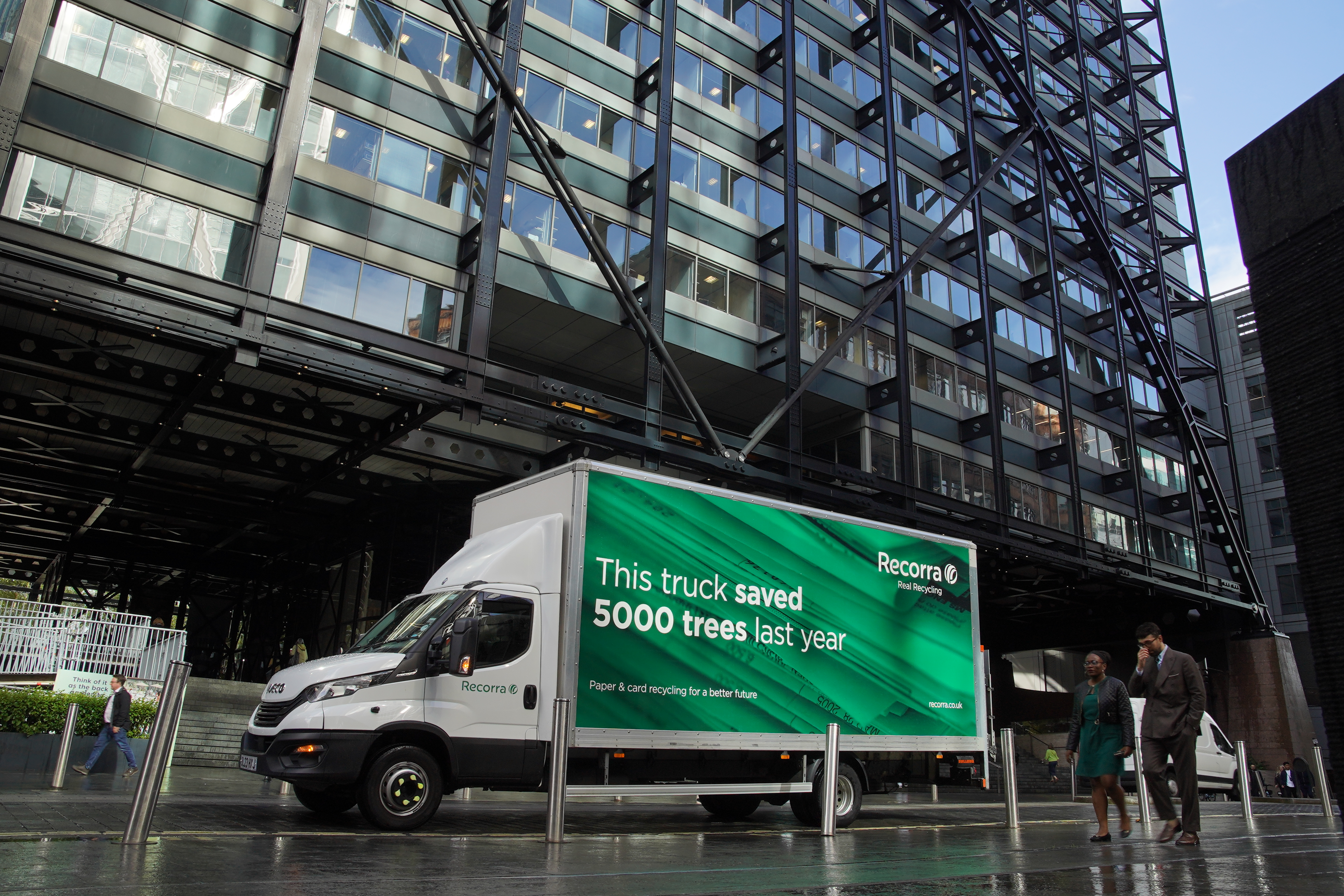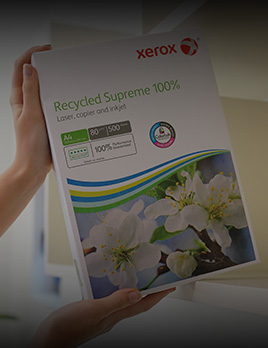
Why choosing recycled really matters for offices
Everyday office choices carry a real climate signal. When buyers choose recycled products they avoid the upstream footprint of extracting and processing new raw materials and they keep valuable resources in circulation for longer. Life cycle assessments consistently show a lower carbon footprint for recycled grades compared with like for like virgin alternatives especially in paper where most offices spend the bulk of their consumables budget.
Recycled paper

Paper is the heartbeat of office purchasing so start where the data is strongest.
• Studies of graphical papers report typical savings with recycled grades of around fifteen to twenty percent lower carbon along with very large wins on water and energy use. These are real cradle to gate savings that show up directly in scope three purchased goods reporting.
• Independent environmental networks and industry calculators show recycled paper outperforming virgin grades for climate and other impact categories across multiple life cycle assessments.
• Europe maintains one of the highest paper recycling rates in the world with strong local feedstock. This reduces the need for long haul virgin fibre and lowers transport emissions.
• Verified labels such as Blue Angel and EU Ecolabel require high recovered fibre content and strict controls on bleaching and additives. Choosing these labels gives buyers confidence that the climate claims are real and independently assessed.
A note on verification
Independent bodies often review the life cycle models and system boundaries used in paper assessments. This is why numbers in the fifteen to twenty percent range appear consistently across reputable studies. Verification matters because it gives procurement teams confidence that the footprint comparisons are fair and based on recognised standards.
Beyond paper
Recycled choices also cut emissions across everyday office staples.
• Remanufactured toner cartridges
Multiple studies show large savings when you reuse the cartridge body. Typical results fall in the forty to fifty percent lower carbon range compared with new cartridges because you avoid the energy and materials required to manufacture a new unit.
• Writing instruments and plastics
Most of the footprint of a plastic pen or marker comes from the raw material. Switching to recycled plastic content and refillable formats reduces that impact significantly with many manufacturer assessments indicating twenty to fifty percent lower carbon depending on design and refill behaviour.
Logistics can amplify the gain
Once you pick lower carbon products the way they reach your desks can compound the benefit. In central London cargo bike deliveries can cut delivery emissions dramatically compared with diesel vans while also improving reliability in dense areas. Pairing recycled products with low emission last mile logistics strengthens the overall footprint reduction for your purchase order.
How Recorra Workplace Supplies helps you lock in the benefits
• Product switching made easy
We will map your current list to recycled and remanufactured alternatives for paper envelopes notebooks files toner pens and markers. We prioritise products with credible labels and verified environmental claims and we shortlist options that match your device fleet and brand standards.
• Evidence you can show to auditors and stakeholders
For tenders ESG reports and customer requests we provide a clear evidence pack that includes environmental calculator results for paper verified label criteria and life cycle summaries for remanufactured toner.
• Lower emission delivery in central London
Where possible we complete last mile by cargo bike to keep operational emissions down which adds a real world boost to the product level savings you are buying.
What this means for a typical office
Start with copy paper and printer supplies since they dominate both spend and impact. A medium office switching three pallets of copy paper per quarter from virgin to high recycled content can expect a meaningful reduction in scope three emissions at the purchased goods level even before counting water and energy savings at the mill. Add remanufactured toner into the plan and you compound the effect often halving the print related footprint per page. Layer in low emission delivery and you create a clean story for procurement that is simple to defend with recognised references.
Buyer checklist to get started
-
Specify recycled content and credible labels for all paper grades you buy beginning with copy paper and envelopes.
-
Replace new toner with remanufactured cartridges across supported devices and set automatic reordering to avoid emergency purchases.
-
Standardise on refillable pens and markers or models with recycled plastic content.
-
Ask your supplier for low emission delivery options for central city drops.
-
Keep your environmental evidence pack on file for audits and customer questionnaires.
Closing thought
Recycled products are not a compromise. They are a practical way to reduce emissions in the categories offices buy every day backed by mainstream science. Start with paper and print then widen out. The savings are real the evidence is strong and the switch is straightforward when you have the right partner.

